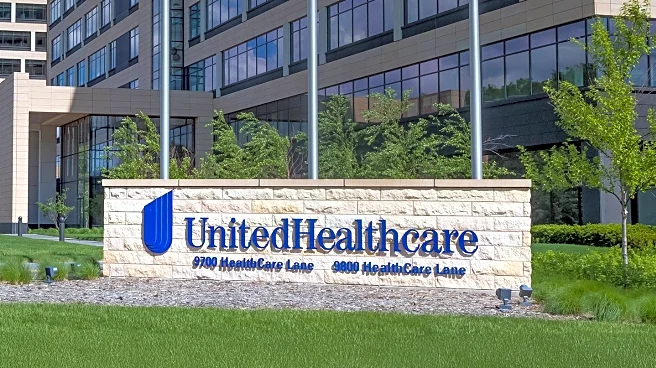What's Happening?
Mayo Clinic has announced that its facilities in Minnesota, Wisconsin, and Iowa will no longer be part of the network for most UnitedHealthcare Medicare Advantage plans. This decision means that patients enrolled in these plans will face out-of-network
costs if they choose to receive care at Mayo Clinic locations. The move is part of a broader trend where healthcare providers are reassessing their participation in Medicare Advantage networks, which are private plans offering Medicare benefits. The change is expected to impact a significant number of patients who rely on Mayo Clinic's specialized services.
Why It's Important?
The decision by Mayo Clinic to leave major Medicare Advantage networks is significant as it affects access to healthcare for many seniors and individuals with disabilities who are enrolled in these plans. Medicare Advantage plans are popular due to their additional benefits compared to traditional Medicare, but network changes can limit patient options and increase out-of-pocket costs. This shift may prompt patients to reconsider their healthcare plans during enrollment periods, potentially leading to increased scrutiny of Medicare Advantage offerings. Healthcare providers and insurers may need to negotiate new terms to balance cost and care quality.
What's Next?
Patients affected by Mayo Clinic's network change will need to explore alternative healthcare options or face higher costs for out-of-network services. This may lead to increased demand for other healthcare providers within the network, potentially straining resources. Insurers might respond by adjusting their plan offerings or negotiating new agreements with healthcare providers to maintain competitive advantage. Additionally, this development could influence other healthcare systems to reevaluate their participation in Medicare Advantage networks, potentially leading to broader changes in the healthcare landscape.
Beyond the Headlines
The decision by Mayo Clinic highlights the ongoing challenges in balancing healthcare costs, access, and quality. As healthcare systems navigate financial pressures, network decisions can have ethical implications, particularly for vulnerable populations relying on consistent access to specialized care. This situation underscores the need for transparent communication between healthcare providers, insurers, and patients to ensure informed decision-making. Long-term, this could drive policy discussions on the sustainability and structure of Medicare Advantage plans.















